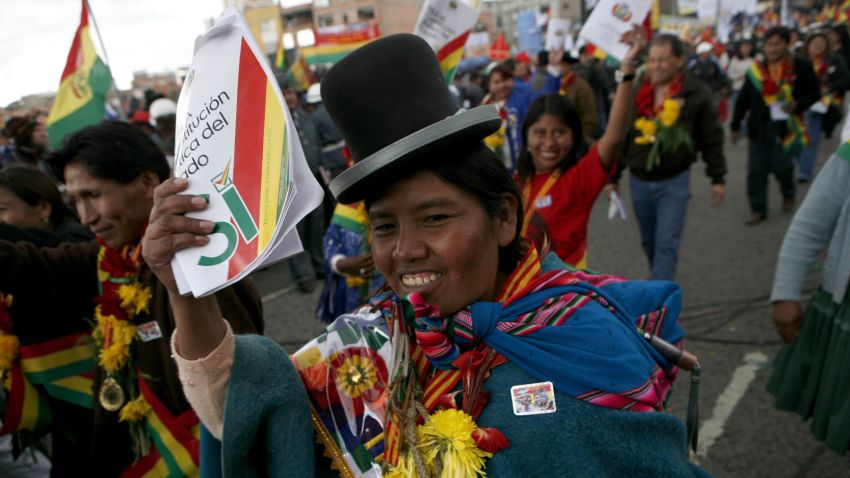LA PAZ, Bolivia—On Sept. 4, Chile will vote on its new constitution, which among other things will make it a “plurinational” state. The measure is meant as a belated recognition of Chile’s Indigenous peoples, who make up 12.8 percent of the population. But some worry that it will create different rules for different groups, and jeopardize the unity of the state.
Whether or not the new constitution passes, the effort to reimagine the state’s relationship with Indigenous peoples is likely to continue. As it does, Chile might look to the experiences of Bolivia, which officially became the Plurinational State of Bolivia in 2009. That year, the country’s newly ratified constitution formally recognized the country’s cultural diversity. But Bolivia’s experience since then shows how radical ideas can end up diluted into policies that, while significant, fall short of fundamental change.
In 2005, the Movement Toward Socialism, or the MAS party, led by former President Evo Morales, came to power in Bolivia and called a Constituent Assembly to draft a new constitution. The demand for plurinationality came from the Pacto de Unidad—the core group of social organizations that supported and continue to support the MAS. Their original proposal was radical and far-reaching. For instance, it involved the reconstitution of the ancestral Indigenous territories of Bolivia, which were large expanses of land that do not correspond to the internal boundaries of Bolivia’s provinces and municipalities. They also called for Indigenous communities to exercise significant control over the laws and administration within their jurisdictions, as well as the natural resources in their territories.

